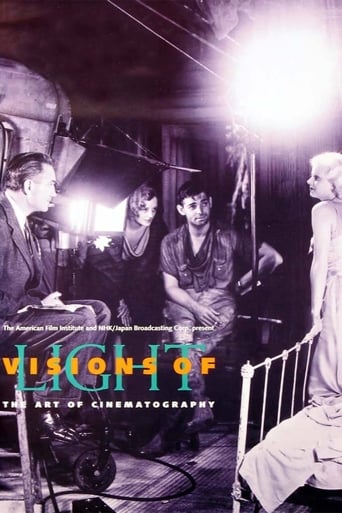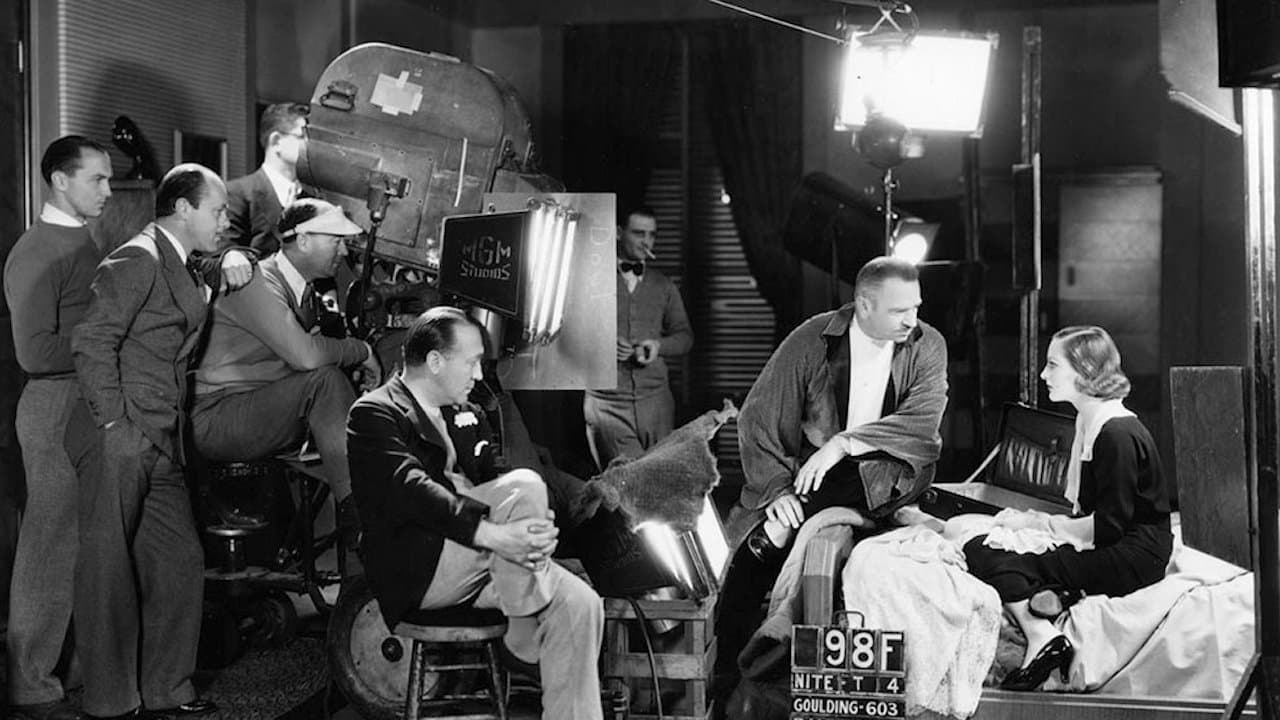poe426
Early on in my movie-going, I came to appreciate a beautifully-shot film, even if there were other aspects (like the story, or the performances, etc.) that weren't up to par- a movie like STREETS OF FIRE, for instance. The LOOK of such a movie outshone its multitude of sins. (Nor is it alone: I simply reference it because it was the first to spring to mind.) While VISIONS OF LIGHT doesn't touch on the career of Ted Tetzlaff (who directed THE WINDOW, a truly outstanding film noir) or a lot of other cinematographers worthy of note, we DO get an appreciation for the works of people like Gordon Willis. To do justice to the craft would take a maxi-series (as opposed to a "mini" series), but, until then, we can make do with VISIONS OF LIGHT.
Martin Teller
I often praise the visuals of a film, but I generally do it in very vague terms without being able to express why I think the photography looks great. I just know what looks good or interesting or striking to me. So I had hopes that this documentary would shed some light (ho ho!) on the art and craft of cinematography. Unfortunately, I didn't get much out of it. It's mostly very basic, surface stuff, more of an exercise in Appreciation 101 than detailed technical analysis. I also wished for a few more esoteric examples. Most of the films discussed are the really obvious ones, especially as the discussion gets closer and closer to contemporary times. The first half of the film is the best part, getting into some of the history, and I particularly enjoyed the look at John Alton and film noir. As a whole, it's a nice compendium and there are a few interesting insights, but it really lacks the depth I was hoping for. I also found it odd that a movie about cinematography would occasionally show clips in the wrong aspect ratio.
shawnserdar
This is a great documentary, of interest to any student of film or anyone who wants to deepen their appreciation of movies. The film showcases some great cinematographers (Caleb Deschanel, Conrad Hall, Gregg Toland, etc.) chronologically, giving a brief history of film at the same time -- it interviews the cinematographers at it shows countless clips from all sorts of film. My only complaint is that, despite the work from several foreign cinematographers, the films are mostly American (this doc was made after all by the AFI), and so it skips out some great legendary international films (from Kurosawa, Bergman, etc.) that deserve equal attention.
tedg
Spoilers herein.I was disappointed in this -- not so much because it was bad, but because we get so few chances at this sort of thing. When we do, we should take advantage of it.My own feeling about films is that the actor is the last person to trust to understand the project. An actor has his own concerns, and some of those conflict with those of the filmmaker. It is the filmmaker's job to create the vision. So too with cinematographers. Whenever one of them wrests control of a film, the film is lessened from what it might have been.That's because film is a uniquely multidimensional experience. Take film music. This is is an art all to itself. Hearing film composers chat about their work is interesting, and that is the level of what we get here. But hearing a talented critic of film music talk about many composers and techniques and effects is a real treat. We missed that here, even before we get into some incredible examples that were overlooked, because because of politics, perhaps because they were too sophisticated for target TeeVee audience, perhaps because the requisite talking head was unavailable.But on beyond that, how wonderful would it have been to have someone intelligent use even these same examples and speak from the perspective of filmmaker. That guide would let us know the negatives of the craft (sorry, couldn't resist), how effects can be composed across skills (art design, editing, acting, writing). It would be worthwhile. To listen to these guys, a film starts with a story, everyone supports the story as best they can, and of these the photographer brings it to life, perhaps artfully. A low point is when we are told about `green is for intelligence' concerning `The Last Emperor.'What a scandal. What a missed opportunity.Ted's rating: 2 of 4 -- Has some redeeming feature.


 AD
AD


